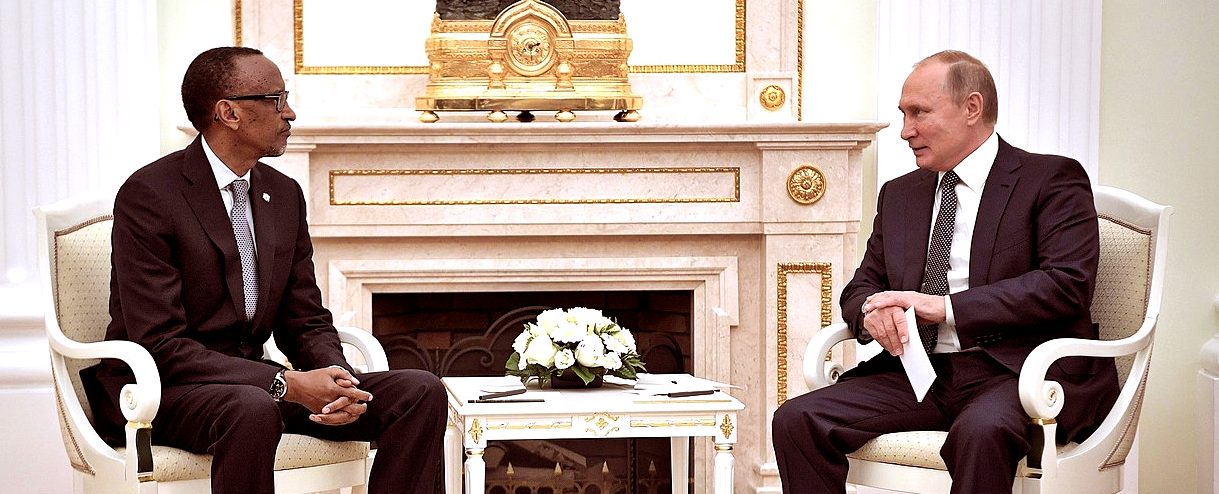By Joseph Siegle
September 17, 2021
While projecting the image of a Great Power, Russia relies on asymmetric tactics to gain influence and pursue its strategic objectives in Africa.

(Photo: Kremlin.ru)
Africa is an attractive target of Russia’s strategy for creating a post-liberal international order, in which unconventional tactics undermine democratic governance and expand Moscow’s global influence. Joseph Siegle, Director of Research at the Africa Center for Strategic Studies, describes the paradoxes at the heart of the strategy and what this means for international democratic actors.
Russia has expanded its influence in Africa in recent years, more, arguably, than any other external actor. From its military intervention in Libya and strengthened ties with Algeria and Egypt in North Africa to its support for military governments in Mali and Sudan, the supplanting of France as the principal international partner in the Central African Republic (CAR), and aggressive outreach across southern Africa, Russia is shifting the continent’s governance and security landscape.
Russia has done so despite providing less than 1% of Africa’s foreign direct investment, an investment smaller than made by Mauritius.
